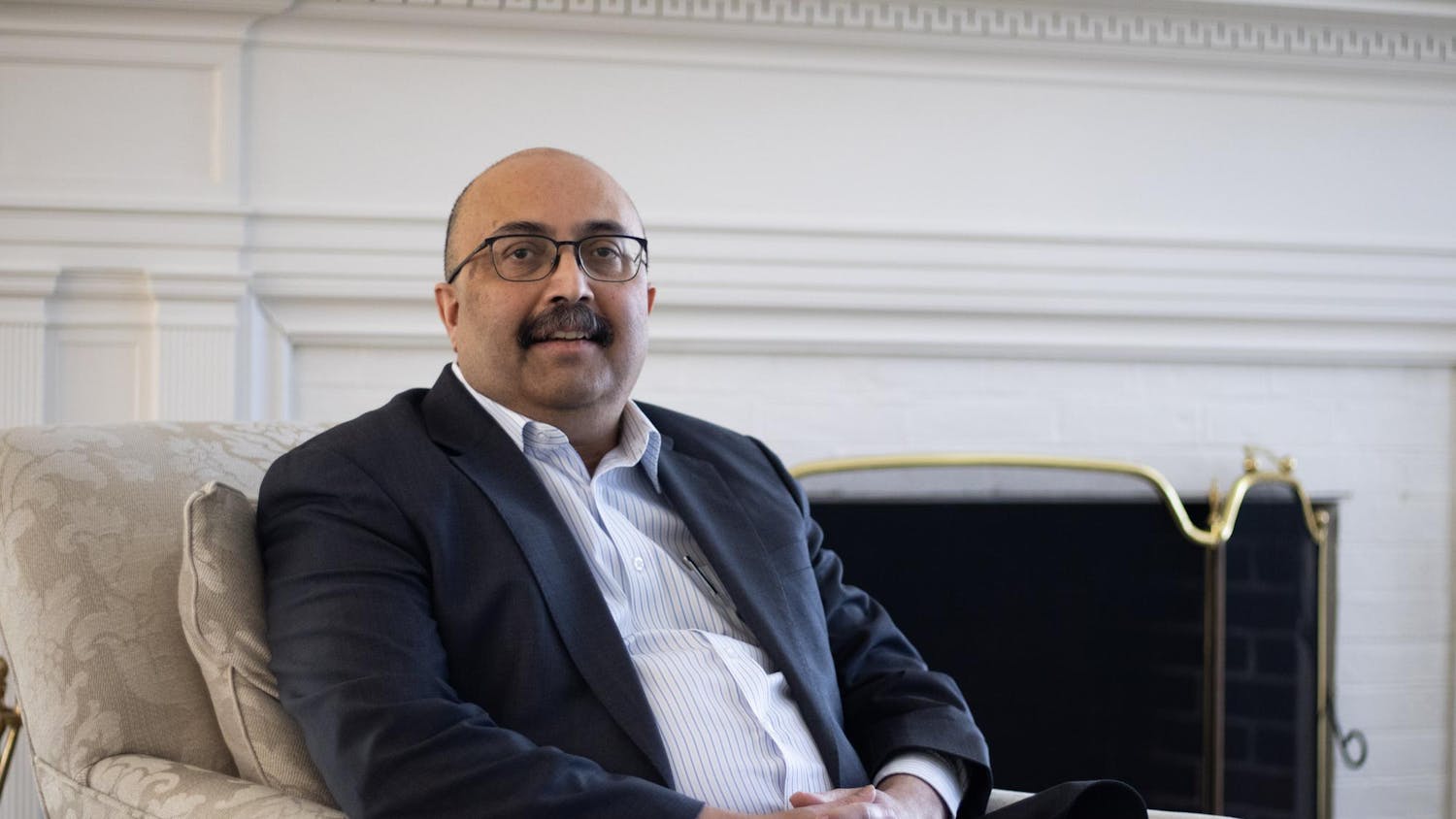Tufts Medical Center and health insurance provider Blue Cross Blue Shield of Massachusetts are back at the negotiating table after a tense month of contract negotiations. If negotiations fail, Blue Cross customers would have to find new doctors or insurance providers. The setbacks highlight faults in the state's healthcare system, according to Healthcare advocates.
Tufts Medical is the main teaching hospital associated with the Tufts School of Medicine.
Tufts Medical and its affiliated physicians group, the New England Quality Care Alliance (NEQCA), announced on Nov. 15 that they planned to end their contract with Blue Cross on Jan. 17, 2012, according to a Blue Cross statement.
Following the announcement, Blue Cross sent a notice to its members to alert them of the impending split.
Two days later, Blue Cross and Tufts Medical announced that they would instead actually continue negotiations mediated by an unnamed third party.
Blue Cross insures approximately 200,000 members who use Tufts?affiliated primary care physicians, according to Tufts Medical Center Vice President of Public Affairs and Communications Brooke Tyson Hynes.
If negotiations fail, those members would have to find new doctors or insurance providers, Hynes told the Daily.
"Our goal and our hope is to reach an agreement and to prevent such a disruption from happening," Hynes said.
Negotiations have been ongoing for approximately four months and have drawn attention to underlying problems in the state's healthcare system, according to Brian Rosman, director of research at Health Care for All, a health care advocacy group.
"Even if these negotiations are successful, this incident highlighted the need for some fundamental changes in how the healthcare system operates," Rosman said. "The patients should not be penalized due to a financial dispute. The key thing is that the system needs to recognize that there's a public interest in these contracts, and there has to be a way to keep patients from being harmed in these negotiating strategies."
The dispute centers on the amount Blue Cross pays Tufts Medical, Boston's sixth largest employer, for its services and how those payments are distributed among Tufts Medical and its physicians group, according to Hynes.
Tufts Medical is not seeking a large pay increase compared to similar hospitals Blue Cross funds, Hynes said, but a 3 percent increase to keep up with inflation.
Although Blue Cross has informally indicated it would accept a three percent increase, Tufts Medical Center has not yet seen a contract that meets that requirement, Hynes explained.
Blue Cross and Tufts Medical experienced a similar showdown over pay in 2009. The two parties eventually resolved the dispute and continued a working relationship.
Blue Cross reimburses certain hospitals more for similar procedures than others, an issue that has continued to plague contract disputes between Blue Cross and Tufts Medical and that has reduced Tufts' leverage in the disputes, Hynes said.
The company makes reimbursement decisions based not on a hospital's quality of care or costs of their services but on market clout, according to Rosman.
Rosman noted that a recent report completed by Massachusetts Attorney General Martha Coakley titled Examination of Health Care Cost Trends and Cost Drivers found a dramatic variation in what health insurance companies pay health care providers.
"The underlying reason [that Blue Cross pays some hospitals more] has nothing to do with quality or cost but market power, whether it be geographic, brand label or reputation," Rosman said. "For us, this points to the need for some public oversight and a way to guide the market so that these decision are made in the public interest instead of just the financial participants."
Blue Cross pays Children's Hospital Boston 95 percent more than Tufts Medical for delivering the same service, Hynes said.
"Tufts Medical Center and our physicians are not paid what similar providers are paid," she said. "It's really not a fair system."
A three percent payment increase is necessary for the hospital, according to Hynes.
"We embrace the idea of being a low cost provider and using patients' dollars efficiently," Hynes said. "We're not looking for the same payment rate as these other hospitals, but we do need some additional compensation in order to continue to provide for our patients."
Hynes said that Tufts Medical Center has fully met Blue Cross' standards in the past, and has improved patient care in recent years.
"For the last two to three years, we have done an excellent job of meeting its standards and have improved patient health and the patient's experience," she said.
University President Anthony Monaco and Tufts Medical School Dean Harris Berman issued a joint statement earlier this month in response to the stalled negotiations urging members of the Tufts community to directly contact Blue Cross to ask them to reconsider their position.
The statement claims that the success of the negotiations directly affects the success of the School of Medicine.
"Our partnership with Tufts Medical Center is critical to our ability to provide outstanding teaching experiences for our students. It is important that Tufts Medical Center be paid fairly in this market in order to continue to deliver excellent patient care, research and teaching," the statement said.
Blue Cross has historically underpaid Tufts Medical and Floating Hospital for Children, the children's hospital located at Tuft Medical, compared to other member hospitals, the statement noted, and asked that Tufts Medical only be treated fairly and equally.
Patients should not have to suffer the consequences of stalled negotiations, Rosman said.
"The key thing is that the system needs to recognize that there's a public interest in these contracts, and there has to be a way to keep patients from being harmed in these negotiating strategies," Rosman said.





